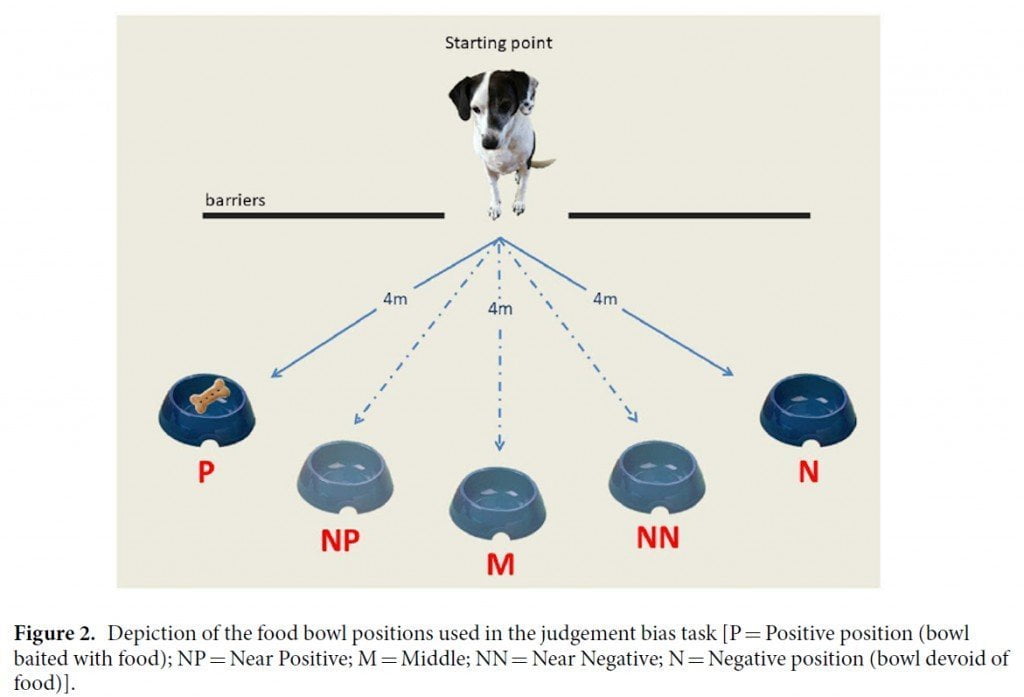Shanis Barnard, Deborah L. Wells, Adam D. S. Milligan, Gareth Arnott and Peter G. Hepper, 2018
ABSTRACT
Certain personality traits (e.g. anxiousness, fearfulness), are known to affect the cognitive processing of environmental stimuli, such as the judgement of ambiguous stimuli (judgement bias). Our aim was to assess if personality traits are predictive of a more or less ‘pessimistic’ or ‘optimistic’ judgement bias in the domestic dog. We assessed dog personality (N = 31) using two validated protocols: the Dog Mentality Assessment (standardised battery test) and the CBARQ (owner-based survey). We used a common task based on the animals’ latency to approach a bowl placed in one of three ambiguous positions (Near Positive, Middle, Near Negative) between a baited (Positive) and a non-baited food bowl (Negative) to assess judgement bias. Linear Mixed Model analyses revealed that dogs scoring higher on sociability, excitability and non-social-fear had shorter response latencies to bowls in an ambiguous location, indicating a more ‘optimistic’ bias. In contrast, dogs scoring higher on separation-related behaviour and dog-directed-fear/aggression traits were more likely to judge an ambiguous stimulus as leading to a negative outcome, indicating a more ‘pessimistic’ bias. Results, partially consistent with previous findings in humans, indicate that personality plays a role in the cognitive processing of environmental stimuli in the domestic dog.
Download full study below



Responses